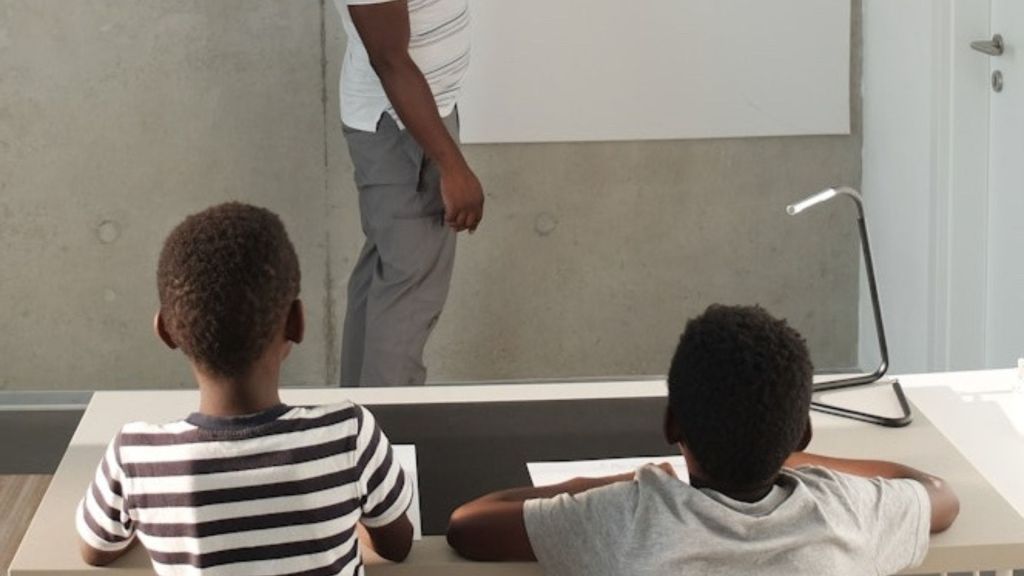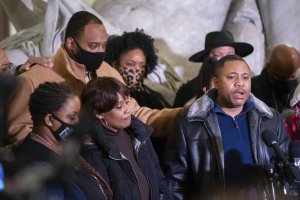By DaQuan Lawrence
AFRO International Writer
DLawrence@afro.com
As the 2024-2025 school year picks up steam, students across the state of Maryland are preparing for after school clubs and activities, while teachers, parents and administrators anticipate back-to-school night events to engage all stakeholders.

Though all involved are focusing on methods and mechanisms to support students’ personal and academic success, an issue of particular concern has been how to support Black male youth.
The AFRO spoke with Black male educators throughout Maryland about the need for programs and supportive mechanisms that promote the emotional and social healing of Black boys involved in grades K-12.
The teachers shared insights about the importance of reconciliation programming across America and the recovery of the Black family from generations of traumatic experiences.
Due to the various social, economic, emotional and psychological issues that Black male youth may experience, educators generally recommended that sports programs, extracurricular activities and mentorship programs could be beneficial to adolescents in need of positive and constructive outlets.
Having access to an adult to speak with about personal, academic goals and family circumstances, and having household expectations that permit and allow Black male youth to communicate and express themselves were also suggestions that received multiple recommendations from Black male educators.
“Just being a Black man, we are always told to toughen up and to ‘be tough.’ I think Black boys have a lot of about their experiences built up inside, based on things that they have not been able to, or allowed to express,” Jesse Bragg, who is a middle school educator in Anne Arundel County, shared with The AFRO.
“I think we need more mentorship for Black male youth. Black boys need an adult who they feel comfortable expressing themselves to,” Bragg, a native of Detroit, Michigan, who has been an educator in Maryland for the past 10 years, added.
Educators generally suggested that schools can provide Black male youth with a sense of belonging through programs like sports and mentorship, which can help reduce feelings of isolation and rejection in students.
According to the 2008 National Assessment of Educational Progress – a federally mandated report on student performance which measured grades 4, 8, and 12 – the reading scores of Black boys in eighth grade were slightly higher than the scores of White girls in fourth grade. The National Center for Education Statistics also reported that in math, 46 percent of African American boys possessed “basic” or higher grade-level skills, compared with 82 percent of White boys.
In Maryland the educational issues that Black male youth face reflect that of the nation at-large. In 2021, the Maryland State Board of Education commissioned efforts to address the widening achievement gap that disproportionately impacts Black male youth in state schools.
According to the report “Transforming the Culture of Maryland’s Schools for Black Boys,” Maryland public school data revealed consistently lower proficiency and graduation rates for Black boys, based on test scores from the Partnership for Assessment of Readiness for College and Careers (PARCC).
Victor Smith, who is originally from Baltimore, Maryland, is currently an educator in Anne Arundel County Public Schools, although he served in the U.S. military and spent time working as a police officer in Maryland.
“I believe that young Black males between kindergarten to 12th grade and beyond need healing from many things that happened systemically to Black males throughout history. Black communities are embedded with trauma, and based upon history, it’s a part of the culture,” Smith told The AFRO.
Researchers have shown that the abundance of educational barriers that Black male youth experience can be overcome by consistent institutional supports that address the issues youth endure. According to “Countering Educational Disparities Among Black Boys and Black Adolescent Boys from Pre-K to High School,” identifying the “cumulative impact of threats and protective factors” for Black males’ “academic success provides insight for supporting Black boys at various developmental stages.”
Or in other words, by creating and providing spaces and opportunities for Black boys to address their emotional health throughout their educational matriculation in grades K-12, families and schools can positively transform the lives of millions of Black male youth.
“Parents might normalize behavior by saying ‘Boys don’t cry’, and there is a lot from households that Black kids endure without knowing how to deal with,” Bragg said.
Providing spaces for Black male youth to discuss their daily experiences has become critical as the suicide rate among Black adolescents is increasing faster than thay of other racial and ethnic groups, according to research provided by the Emergency Taskforce on Black Youth Suicide and Mental Health.
Between 2007 and 2020, the suicide rate among Black 10- to 17-year-olds increased by 144 percent, according to Johns Hopkins University’s Center for Gun Violence Solutions.
Recent federal data from The Pew Charitable Trusts shows that in 2022 the suicide rate among Black youth ages 10 to 19 exceeded that of White youth for the first time, increasing 54 percent since 2018, compared to a 17 percent decrease for White youth.
“I believe that the school system is going to be the foundation,” Smith said, sharing his thoughts on how schools play an invaluable role in preventing and diminishing suicide rates among Black male youth.
“I think there is still some level of taboo about discussing suicide within households and schools are equipped with systems and adults who can readily provide Black male youth with needed support. The culture inside schools are different than households,” Smith said.
“If kids felt protected or felt that somebody had their best interest at heart, I think they’d be a little bit more willing to communicate with that person,” Bragg added, discussing his thoughts of ways to prevent suicide among Black adolescent males.
“Most of the time they don’t have anyone or a safe space, so they keep everything to themselves and try to deal with it the best way they can,” Bragg explained.
The post Black male educators share suggestions to enhance Black male students’ performance appeared first on AFRO American Newspapers.











